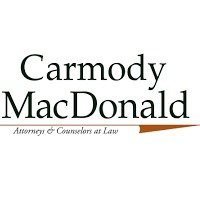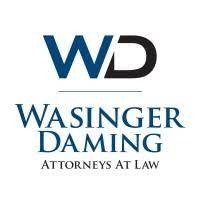Best Creditor Lawyers in St Louis
Share your needs with us, get contacted by law firms.
Free. Takes 2 min.
List of the best lawyers in St Louis, United States
About Creditor Law in St Louis, United States
Creditor law in St Louis, Missouri, involves regulations and legal processes related to the rights and obligations of creditors-individuals or entities to whom money is owed. This area of law encompasses debt collection, bankruptcy proceedings, foreclosure processes, and creditor rights during estate settlements. St Louis operates under federal laws such as the Fair Debt Collection Practices Act (FDCPA) and state-specific statutes that govern creditor-debtor relationships and the legal mechanisms creditors can use to recover debts.
Why You May Need a Lawyer
There are several situations in which individuals or businesses might require legal assistance related to creditor issues:
- Debt Collection: If you are a creditor struggling to recover a debt, a lawyer can help navigate legal frameworks to lawfully and efficiently collect what is owed.
- Bankruptcy Cases: Creditors often need legal representation to ensure their rights are upheld when a debtor files for bankruptcy.
- Foreclosures and Repossessions: Legal counsel can assist creditors with foreclosures or repossessions when borrowers default on secured loans.
- Contract Disputes: In cases of breached contracts or loan agreements, a lawyer can represent the interests of creditors.
- Consumer Protection Compliance: Attorneys can provide guidance on complying with laws like the FDCPA to avoid legal repercussions during debt collection efforts.
Local Laws Overview
In St Louis, various local and state laws affect creditor actions:
- Missouri Statutes: Missouri's laws on debt collection and interest rates set guidelines on what creditors can charge and collect.
- Judicial Foreclosure Processes: Unlike non-judicial foreclosure states, Missouri requires judicial proceedings, offering both creditors and debtors legal recourse through the courts.
- Garnishment Laws: Missouri has specific regulations about wage garnishments, including limits on the amount creditors can garnish.
- Statute of Limitations: Creditors need to be aware of time limits on filing lawsuits to recover debts, varying by debt type.
Frequently Asked Questions
What can I do to collect a debt if someone owes me money in St Louis?
Creditors can pursue collection through direct communication, using a collection agency, or filing a civil lawsuit. Each method must comply with state and federal guidelines.
How does a creditor initiate foreclosure proceedings in St Louis?
Foreclosure requires filing a lawsuit in court, after which the property is auctioned to recover the owed amount. It is advisable to follow legal procedures closely to avoid disputes.
Are there specific laws governing credit card debt collection in St Louis?
Yes, creditors must adhere to both the Fair Debt Collection Practices Act (FDCPA) and Missouri laws, which regulate how they can communicate and pursue collection from borrowers.
Can a creditor garnish my wages in St Louis, and if so, how much?
Yes, creditors can obtain a court order to garnish wages, typically up to 25% of disposable income, within Missouri state law limits.
What is the statute of limitations for collecting debts in St Louis?
The statute varies; generally, it is five years for breach of contract cases and ten for written contracts, including promissory notes.
Does filing for bankruptcy affect creditor rights in St Louis?
Yes, an automatic stay is placed once bankruptcy is filed, halting all collection efforts. Creditors may file a claim with the bankruptcy court to recover debts as per the proceedings.
Can a creditor still pursue a debt if a debtor moves out of state?
Yes, but it may require additional legal steps, such as domestication of the judgment, depending on the state to which the debtor has moved.
What protections do debtors have against aggressive creditors in St Louis?
The FDCPA provides protections against harassment, including restrictions on communication times and methods.
How are medical debts handled differently from other debts in St Louis?
Medical debts often follow similar collection practices but can differ in terms of statute limitations and negotiation options due to healthcare laws.
Is there a minimum amount for which a creditor can pursue a lawsuit in St Louis?
No minimum exists, but costs may outweigh benefits for low amounts, influencing a creditor's decision to pursue litigation.
Additional Resources
- Missouri Attorney General's Office: Provides resources and assistance for both debtors and creditors.
- Consumer Financial Protection Bureau (CFPB): Offers guidance on federal creditor regulations.
- Local Bar Associations: Can provide referrals for attorneys specializing in creditor law.
- Legal Aid Society of Missouri: Offers legal assistance for those who qualify.
Next Steps
If you need legal assistance regarding creditor issues in St Louis, begin by consulting with a lawyer who specializes in creditor rights and debts. They can provide personalized guidance and represent your interests effectively. Start by contacting your local bar association for referrals or searching online directories for attorneys with expertise in creditor law. Additionally, reviewing the local laws and resources mentioned can prepare you for initial consultations, ensuring you understand your rights and options.
Lawzana helps you find the best lawyers and law firms in St Louis through a curated and pre-screened list of qualified legal professionals. Our platform offers rankings and detailed profiles of attorneys and law firms, allowing you to compare based on practice areas, including Creditor, experience, and client feedback.
Each profile includes a description of the firm's areas of practice, client reviews, team members and partners, year of establishment, spoken languages, office locations, contact information, social media presence, and any published articles or resources. Most firms on our platform speak English and are experienced in both local and international legal matters.
Get a quote from top-rated law firms in St Louis, United States — quickly, securely, and without unnecessary hassle.
Disclaimer:
The information provided on this page is for general informational purposes only and does not constitute legal advice. While we strive to ensure the accuracy and relevance of the content, legal information may change over time, and interpretations of the law can vary. You should always consult with a qualified legal professional for advice specific to your situation.
We disclaim all liability for actions taken or not taken based on the content of this page. If you believe any information is incorrect or outdated, please contact us, and we will review and update it where appropriate.










